2024 Academic Thesis Prize: Constantin PAYERNE
Headlines, Research
Constantin PAYERNE received the 2024 Academic Thesis Prize for his research work among PhDs graduating in 2023.
Thesis Title: Galaxy cluster cosmology in the LSST era
 Cosmology attempts to understand the history of the Universe, from the Big Bang to the present day. A cosmological analysis aims to constrain the parameters of a given cosmological model (including, for example, the densities of dark matter and dark energy) based on a series of observations called cosmological probes. Among these are galaxy clusters, which are groups of hundreds or even thousands of galaxies trapped by gravity within immense halos of dark matter. In particular, the number count of clusters in different mass and redshift intervals (redshift: a spectral property of clusters indicating their distances from us) is closely linked to the cosmic history of the Universe and thus to the nature of dark matter and dark energy. In the optical domain, clusters are detected from galaxy surveys, such as the Legacy Survey of Space and Time (LSST) conducted by the Vera C. Rubin Observatory in Chile, which will begin in 2026. My thesis work was part of the Dark Energy Science Collaboration (DESC), which is preparing the cosmological analysis of LSST data. I mainly focused on the relationship between the mass of clusters and the number of galaxies they contain (known as richness), called the mass-richness relation. Characterizing this relation is an essential step in cosmological analysis because it allows us to deduce the mass of clusters from their observational counterparts. The effect of gravitational lensing can be used to calibrate this relation; the bending of light rays by the underlying cluster's gravitational fields leads to a distortion of background galaxy images, and the amplitude of this distortion depends on the underlying cluster mass. I developed various tools within the official DESC codes that allow for the measurement of the lensing mass of clusters and for estimating how various systematic effects related to lensing measurements propagate to cosmological constraints, using simulated galaxy catalogs from the DESC Data Challenge 2 (DC2). In parallel, I worked on the decomposition into multipole coefficients of the lensing signal, allowing us to measure cluster triaxiality, which is an important source of error in the standard lensing mass measurement method (which assumes that clusters are spherical). A second part of my work specifically addressed the Bayesian inference step, which aims to determine the values of cosmological parameters and their associated errors. The evaluation of these errors is a critical and delicate point, as it allows us to assert whether there is agreement or, conversely, tension between the results of different analyses, which could indicate a limitation of the underlying cosmological model and the need for new physics! I have developed a new statistical method to test the robustness of cluster count likelihood functions (encoding the statistical information of cluster counts) that are currently used in the literature. I also proposed a new formalism to account for the effects of cosmic variance (that will be significant for LSST-like surveys) in the so-called "unbinned" likelihood of cluster counts, when the mass and redshift intervals are infinitely fine.
Cosmology attempts to understand the history of the Universe, from the Big Bang to the present day. A cosmological analysis aims to constrain the parameters of a given cosmological model (including, for example, the densities of dark matter and dark energy) based on a series of observations called cosmological probes. Among these are galaxy clusters, which are groups of hundreds or even thousands of galaxies trapped by gravity within immense halos of dark matter. In particular, the number count of clusters in different mass and redshift intervals (redshift: a spectral property of clusters indicating their distances from us) is closely linked to the cosmic history of the Universe and thus to the nature of dark matter and dark energy. In the optical domain, clusters are detected from galaxy surveys, such as the Legacy Survey of Space and Time (LSST) conducted by the Vera C. Rubin Observatory in Chile, which will begin in 2026. My thesis work was part of the Dark Energy Science Collaboration (DESC), which is preparing the cosmological analysis of LSST data. I mainly focused on the relationship between the mass of clusters and the number of galaxies they contain (known as richness), called the mass-richness relation. Characterizing this relation is an essential step in cosmological analysis because it allows us to deduce the mass of clusters from their observational counterparts. The effect of gravitational lensing can be used to calibrate this relation; the bending of light rays by the underlying cluster's gravitational fields leads to a distortion of background galaxy images, and the amplitude of this distortion depends on the underlying cluster mass. I developed various tools within the official DESC codes that allow for the measurement of the lensing mass of clusters and for estimating how various systematic effects related to lensing measurements propagate to cosmological constraints, using simulated galaxy catalogs from the DESC Data Challenge 2 (DC2). In parallel, I worked on the decomposition into multipole coefficients of the lensing signal, allowing us to measure cluster triaxiality, which is an important source of error in the standard lensing mass measurement method (which assumes that clusters are spherical). A second part of my work specifically addressed the Bayesian inference step, which aims to determine the values of cosmological parameters and their associated errors. The evaluation of these errors is a critical and delicate point, as it allows us to assert whether there is agreement or, conversely, tension between the results of different analyses, which could indicate a limitation of the underlying cosmological model and the need for new physics! I have developed a new statistical method to test the robustness of cluster count likelihood functions (encoding the statistical information of cluster counts) that are currently used in the literature. I also proposed a new formalism to account for the effects of cosmic variance (that will be significant for LSST-like surveys) in the so-called "unbinned" likelihood of cluster counts, when the mass and redshift intervals are infinitely fine.Mots clés : Telescopes, Gravitational Lensing, Galaxy - Clusters, LSST, Cosmology
Doctoral School: ED PHYS - Physics
Research laboratory: Laboratoire de physique subatomique et de cosmologie (LPSC - CNRS/UGA/Grenoble INP-UGA)
Thesis supervision: Céline COMBET
> To find out about all the 2024 thesis prizes
Updated on May 30, 2024

